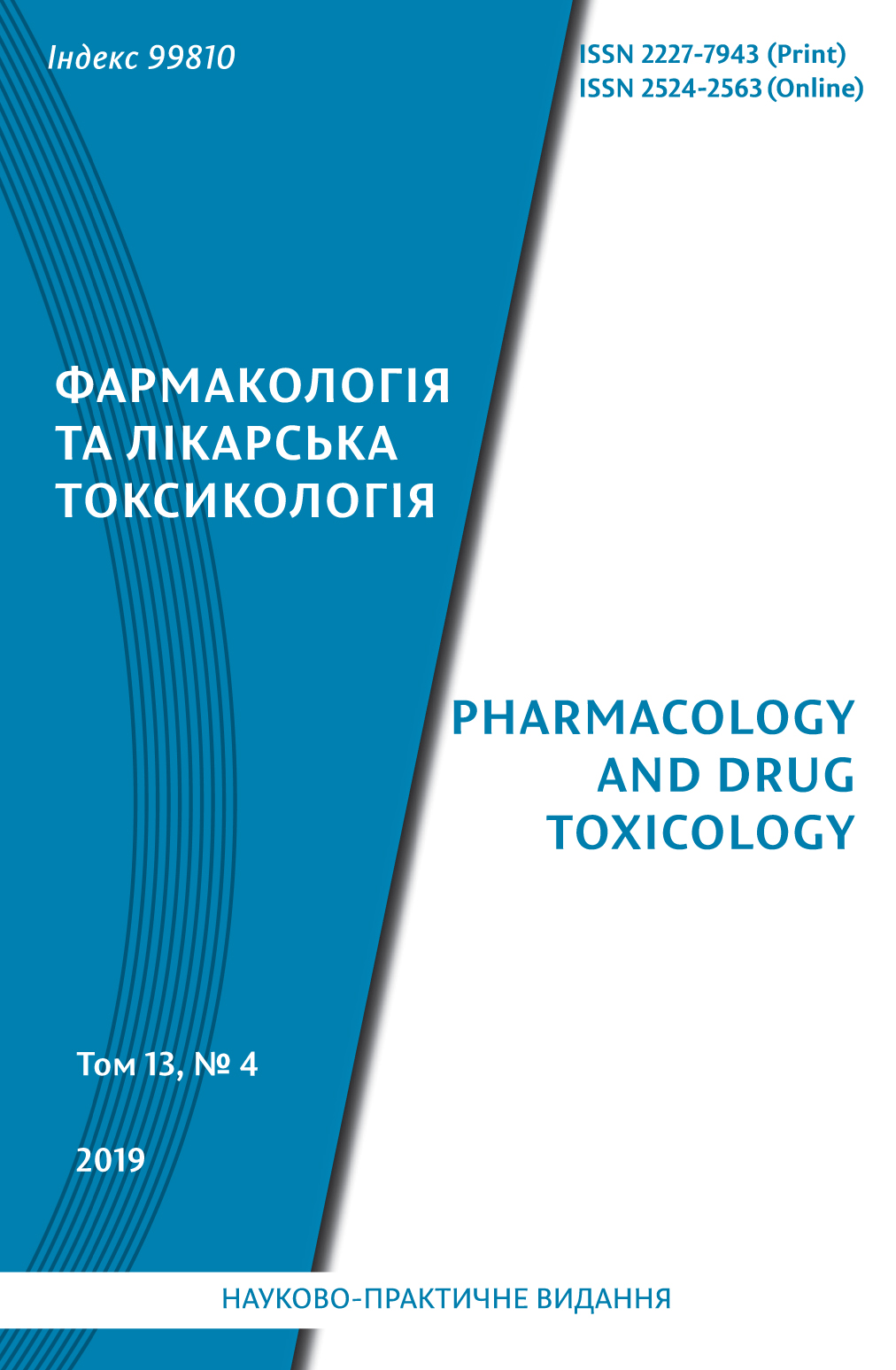Abstract
The paper presents the results of an experimental data dedicated to the syntesis and study of the cardiotropic properties of the original thiazole derivative [3-Allil-4-(41-methoxyphenyl)-3H-thiazole2-ylidene]-(32-tryfluoromethylphenil)amine hydrobromide with code name – Cardiazol, as a promising cardioprotective drug. A convenient and effective method for the preparation of a substance Cardiazol, which is suitable for use on an industrial scale, is proposed. It was found that Cardiazole has a pronounced cardiotropic effect commensurate with mildronate in a series of in vitro experiments. The intraperitoneally administration of Cardiazol to white rats at a dose of 7 mg/kg causes an antihypertensive effect and leads to reduce blood pressure by 12,9 % and 16,7 % 60 min and 180 min after administration and did not affect the frequency and heart rhythm rate. It was established that the use of Cardiazol causes cardioprotective effect and leads to a decrease in the mortality rate of white rats in the adrenaline model of myocardial infarction, improves the biochemical profile of markers of the pathological process (AST, LDH, MB-CPK enzymes) and normalizes changes in the ECG.
